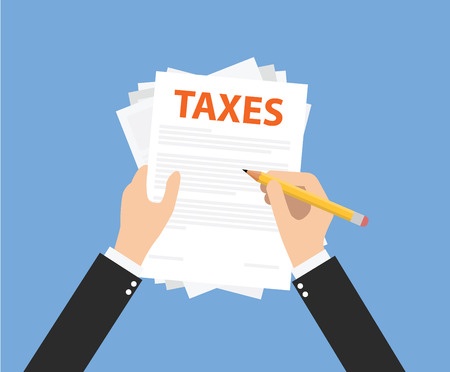Experienced Accountants & Other Advisers Benefit SME Owners
 If you’re a small or medium-sized business (SME) owner you may find that you can benefit by working alongside experienced advisers who have been there, done that (whether for themselves in the past, or for other clients) and can help you navigate the choppy waters of business.
If you’re a small or medium-sized business (SME) owner you may find that you can benefit by working alongside experienced advisers who have been there, done that (whether for themselves in the past, or for other clients) and can help you navigate the choppy waters of business.
You don’t have to do everything on your own. Even if you’re in a partnership (or you’re planning on hiring an employee very soon), running an SME can be a lonely experience, especially in the early days. For this reason, when you work with experienced advisers, whether accountants, business advisers, or human resources professionals, you’ll gain not just from their insight and experience, but also from their presence. That's why it is important to embrace such relationships with experts and once you've done the appropriate research to seek out experienced advisers, don't shy away from reaching out to them.
Get Measurable Motivation
When you work alongside an experienced adviser, whether in one particular field (such as accountancy) or in a more general role, they will give you measurable motivation going forward, even if they don’t realise they’re doing it.
For some reason we’re incredibly good at breaking our word to ourselves, but most of us find it incredibly hard to break our word to somebody else. When you’re frequently checking in with an adviser you’ll find that they make a point of asking whether you followed through with something you discussed last time you spoke - thus acting as an accountability partner and motivating you to do what you said you’d do.
Gain New, Professional Connections
Whether you’re paying them for their services or not, it’s never an advisor’s job to introduce you to their network of professional connections. With that said, an experienced advisor (including accountants) will be happy to introduce you to somebody if and when they believe such an introduction will be beneficial both to you, and to the professional in question.
This is how you build your network. It could be that your adviser knows how to personally help you with ninety percent of your queries; but when it comes to that final ten percent, advisers worth their salt will known who to introduce you to.
Delegate Elaborate, Time-Consuming Work
Most advisers, especially when it comes to the financial side of business, will offer you advice but will stop short of doing work on your behalf. Though receiving financial advice is incredibly useful, especially when you’re just starting out in business, if you require assistance in dealing with the financial side of your business you should look into hiring an experienced, professional accountant.
Professional accountants allow you to delegate the elaborate, time-consuming accountancy tasks that, up until this point, have likely been taking up far more of your time than you originally thought they would. A professional accountant will also work on your behalf to ensure you receive all the tax reliefs available to you. That said, we have an extensive bank of information on our blog that should give you more than enough information to digest before needing to take on experts fulll time.
Experienced Accountants
To speak with an accountant to discuss the benefits of handing the financial side of your business over to our experienced professionals, contact us today on 020 8780 2349 or get in touch with us via our contact page to arrange a complimentary, no obligation meeting. In the meantime, feel free to check out our services page to see what we offer in more detail.
What the Dividend Allowance Changes Mean for SMEs
Announced during last year’s emergency (summer) Budget, the proposed dividend tax changes, known as the new tax-free Dividend Allowance, are due to come into force on 6 April 2016, replacing the old Dividend Tax Credit.
Under the tax-free Dividend Allowance changes, all UK residents won’t be taxed on the first £5,000 of dividend income they receive each year, with dividend income above the new £5,000 threshold taxed at:
- 7.5% on dividend income that falls within the basic rate band
- 32.5% on dividend income in the higher rate band
- 38.1% on dividend income in the additional rate band
It’s important to keep in mind that these changes will not affect dividends received via tax-exempt pension funds, as well as dividends you have received on shares in an Individual Savings Account (ISA), as is the case now.
Impact on Small Business Owners
Designed to tax small businesses who purposely pay their owners and executives a small salary (in order to secure their access to the State Pension), with the bulk of their income coming in a larger dividend payment, the government has marketed these changes as a boon for the majority of the population: a £5,000 Dividend Allowance, on top of the current £11,000 personal allowance, sounds rather attractive after all.
However, the impact of the proposed dividend tax changes on small and medium-sized business (SME) owners has the potential to create a negative affect on small business bottom line’s across the country.
In an online petition created under the title “Reconsider the new Dividend Tax for small businesses,” petition creator Frauke Golding noted that:
“The Government have stated that business is going to be at the heart of their programme for the next 5 years. Small businesses make up 99.3% of all private sector businesses and we provide just under 50% of all private sector jobs. There is a real danger that this new tax, along with auto enrolment and minimum wages increases, will have a significant effect on those people brave enough to start up a business that could make a meaningful contribution to the economy and jobs market.”
In response to Mr. Golding’s petition, which at time of writing has received 46,627 of the 100,000 signatures it needs to be considered for debate in Parliament, HM Treasury commented in defence of the dividend tax change, noting that “The Government is fully committed to supporting business and entrepreneurship,” before launching into three paragraphs that touched upon the government’s desire to reduce Corporation Tax from 20 to 18 percent by 2020, as well as a rundown of the benefits small business owners are also soon to receive:
“Owners of small companies will also benefit from a range of other measures announced at the Summer Budget, including an increase in the National Insurance Employment Allowance to £3,000 from April 2016 and a permanent increase to the Annual Investment Allowance to £200,000 from January 2016. They will also pay less tax as a result of the increases to the tax-free Personal Allowance to £11,000 and to the Higher Rate Threshold to £43,000 in April 2016.”
Our Advice
In light of the tax-free Dividend Allowance coming into force on April 6, our advice for small business owners is to take some time to look through the numerous examples the government provide in their Dividend Allowance factsheet to get an understanding of whether you will be better or worse off as a result of the change. For more information on governement changes and the effects they have on you or your business, have a read of our pieces on the following:
Budget 2016: Key Takeaways for Contractors
Budget 2016: Key Takeaways for Companies
Budget 2016: Key Takeaways for Individuals
If that's not enough, we have a wealth of information on our blog too.
For personalised advice to this effect, we encourage you to contact your tax adviser.
Experienced Tax Accountants
To speak with a professional accountant to discuss the tax implications of the new tax-free Dividend Allowance, or for anything else, contact us today on 020 8780 2349 or get in touch with us via our contact page to arrange a complimentary, no obligation meeting.
Business Rates - Celebrations for small business owners?
Does George Osborne's budget announcement come with reason to celebrate for small business owners? Well, don't make a gin and tonic.
For around 600,000 small business, there maybe a temptation to raise a glass to Mr. Osbourne, no matter how unpalatable that may seem for some, when their zero rated business rates kick-in next year, but just make sure it’s not a Gin & Tonic.
This news, the highlight for many small business owners, has been somewhat overshadowed by the news that there will be a new sugar tax applied to soft drinks. Whether this will go any way to reducing childhood obesity in this country is now a hotly trending topic on social media, as is the side effect of increasing the cost to adults of soft drink mixers, such as tonic water - there’s always the slimline option though.
So, even if the Chancellor wants to sugar coat bad news in the future, he may have to pay for it.
Business Rates - Small business owners benefit
It’s truly excellent news for a lot of small business owners as they could see savings of nearly £6,000 a year.
However, this is still overshadowed by the introduction from April onwards of the new dividend tax scheme. This sees the scrapping of the notional 10% tax credit on dividends and the introduction of a £5000 tax free allowance on dividends. Above this level dividends will be taxed at 7.5% (basic rate), 32.5% (higher rate), and 38.1% (additional rate).
More welcome news is that corporation tax will drop to 17% by 2020.
Capital Gains Tax - Investors also given a helping hand
The higher rate of tax on capital gains will reduce from 28% to 20%, while the lower rate will see a reduction from 18% to 10%. This is particularly good news for investors looking to sell shares. This doesn't apply to residential property, but does happy to the sale of equity in businesses.
Also, capital gains on newly-issued shares in unlisted companies, kept for at least three years, will be capped at 10% with an allowance up to £10 million.
Highlights
- Corporation tax to be cut to 17% from 2020
- Capital gains tax slashed by 8% for both top rate and basic rate taxpayers
- Small business rate relief to increase from £6000 to £15000. They will also be linked to CPI and will track inflation.
- Personal allowance increase to £11,500 and the higher rate, 40% threshold, will increase to £45,000.
- CGT earned from small business investment will be capped at 10%.
- ISA extension to £20k
Issues To Watch
Trading income received in non-monetary form.
Exchanges that don't involve cash, receivables or payables is the target of new legislation being introduced. Trading receipts at their full value will be taken into account for tax purposes.
Partnership taxation
Consultation is set to begin on how partnerships calculate their tax liabilities. This may have an impact of the company structure you choose when starting out.
The administration of tax on employee benefits and expenses
The government plans to introduce a package of measures that will hopefully make the process of administering employee benefits and expenses a simpler task.
Salary sacrifice
Considering is being given to the practice of salary sacrifice, where employees can give up salary in return for ‘benefits-in-kind’. The government is looking to limit the range of benefits that attract income tax and NICs advantages under such schemes.
Find out more
If you're interested in finding out more on George Osborne's Budget, take a look at the following:
Budget 2016: Key Takeaways for Contractors
Budget 2016: Key Takeaways for Companies
Budget 2016: Impact on Individuals
Alternatively, if you'd like some friendly advise on the current reforms and are looking for help taking your business forward, feel free to get in touch via our contact form.
Budget 2016: Key Takeaways for Contractors
Following on from this morning’s summary on the key talking points from Budget 2016 for individuals, below we’ve summarised the key talking points for contractors from Chancellor of the Exchequer George Osborne’s eighth full Budget.
Keep an eye out for our article summarising Budget 2016 for small and medium-sized businesses (SMEs), coming later today.
New Tax Allowances for ‘Sharing Economy’ Workers
One of the biggest takeaways from Budget 2016 from the point of view of contractors was that the Chancellor has, finally, recognised how traditional taxation methods have been having a negative impact on contractors earning small and one-off payments as part of the sharing economy.
Speaking to the House of Commons, Mr. Osborne said:
 “We’re going to help the new world of micro-entrepreneurs who sell services online or rent out their homes through the internet. Our tax system should be helping these people so I’m introducing two new tax-free allowances each worth £1,000 a year, for both trading and property income.”
“We’re going to help the new world of micro-entrepreneurs who sell services online or rent out their homes through the internet. Our tax system should be helping these people so I’m introducing two new tax-free allowances each worth £1,000 a year, for both trading and property income.”
The Chancellor continued by noting that there will be no forms to fill out in order to benefit from this tax break, before claiming that at least 500,000 people will benefit from this change.
Class 2 National Insurance Contributions for the Self-Employed to be Scrapped
The other big announcement, from the point of view of contractors, was that Class 2 National Insurance contributions (NICs) for the self-employed are due to be abolished from April 2018 in favour of the benefits of Class 2 NICs (primarily entitlement to the State Pension) being combined with the benefits of paying Class 4 NICs.
Currently costing contractors and self-employed individuals making a profit of £5,965 or more per year £2.80 per week, from April 2018 you will only be required to pay Class 4 NICs, though it is unclear whether the current weekly cost of Class 2 NICs will transfer directly to the new Class 4 NICs.
Business Rates Abolished for Properties With Value up to £12,000
One of the biggest talking points from Budget 2016 was that of business rates being abolished for all business (commercial) properties with a rateable value up to £12,000, from April 2017. There will also be a ‘tapered’ relief rate on properties between £12,001 and £15,000.
With the current relief rate set at just £6,000, this poses a hugely beneficial increase for small businesses and contractors working from a commercial space. The government estimate that under the new rules 600,000 small businesses will pay no rates at all.
Personal Allowance to Increase to £11,500
Touched upon in this morning’s key talking points for individuals summary, and seen equally as a boon for contractors, from April 2017 the personal allowance will increase to £11,500 (after rising to £11,000 next month).
The personal allowance was just £6,500 when the Conservatives were elected six years ago, displaying an almost 100% increase.
Understanding Budget 2016
To speak with a professional accountant to discuss the impact of Budget 2016 on you as a contractor, or for anything else, contact us today on 020 8780 2349 or get in touch with us via our contact page to arrange a complimentary, no obligation meeting.
More Information
If you're interested in the Budget 2016 changes and the impact they'll have on you, feel free to check out our other pieces on the impacts of George Osborne's changes:
Budget 2016: Key Takeaways for Companies
Budget 2016: Key Takeaways for Individuals
Budget 2016: Key Takeaways for Companies
Following on from this morning's summaries on the key talking points from Budget 2016 for individuals and contractors, below we’ve summarised the key talking points for companies from Chancellor of the Exchequer George Osborne’s eighth full Budget.
Focusing on small and medium-sized businesses (SMEs), this is the final part in our article series on Budget 2016. To speak with us directly about this year’s Budget, or for anything else, our contact details are at the end of this article.
New Stamp Duty Rates for Commercial Properties
Coming into effect at midnight on 17 March/last night, the new stamp duty rates for commercial properties represent a complete overhaul in the way in which stamp duty on freehold commercial property and leasehold premium transactions is calculated.
A boon for small and medium-sized business (SME) owners, under the new rules instead of stamp duty rates applying to the whole value of a commercial property, Mr. Osborne described how the new rates and tax bands will result in a 0% stamp duty rate for commercial property up to the value of £150,000, with a 2% rate applying for the portion of a commercial property’s value between £150,001 and £250,000, and a 5% rate applying for the portion above £250,000.
Business Rates Abolished for Properties With Value up to £12,000
We touched upon this in our key talking points for contractors summary, though it’s more relevant for companies than it is contractors. One of the biggest talking points from Budget 2016 was that of business rates being abolished for all business (commercial) properties with a rateable value up to £12,000, from April 2017. There will also be a ‘tapered’ relief rate on properties between £12,001 and £15,000.
With the current relief rate set at just £6,000, this poses a hugely beneficial increase for small businesses and contractors working from a commercial space. The government estimate that under the new rules 600,000 small businesses will pay no rates at all.
Employers to Pay National Insurance Contributions on Pay-Offs
If you have taken on employees at your SME, from April 2018 you will need to pay National Insurance Contributions (NICs) on any pay-offs (typically employee termination payments) you make above £30,000.
As is currently the case, should you have to make an employee’s position redundant that employee can receive a pay-off from you of up to £30,000 without you or they having to pay NICs on that amount.
Corporation Tax to Reduce to 17% by 2020
Though it’s a little while off yet, at yesterday's Budget the Chancellor announced that Corporation Tax is due to drop from 20% to 17% by 2020.
Should this reduction come to fruition it will mark a particularly low Corporation Tax rate, given that it was 28% when the Conservatives came to power in 2010. At it’s current rate of 20%, the UK has the lowest Corporation Tax rate in the G20.
Understanding Budget 2016
To speak with a professional accountant to discuss the impact of Budget 2016 on your company, or for anything else, contact us today on 020 8780 2349 or get in touch with us via our contact page to arrange a complimentary, no obligation meeting.
If you're an individual or contractor, you needn't go to the trouble. Check out our pieces that are best suited to you:
Budget 2016: Key Takeways for Contractors
Budget 2016: Key Takeaways for Individiuals
Budget 2016: Impact on Individuals
Yesterday, Wednesday 16 March 2016, Chancellor of the Exchequer George Osborne delivered his eighth full Budget to the House of Commons since the Conservatives came into power in 2010; his second since the party’s majority win in May of last year.
Below we’ve summarised the key talking points from Budget 2016 for individuals. You’ll note what the Guardian call a number of “voter-wooing measures” in our summary. With the Brexit vote scheduled for 23 June, the Conservatives were adamant that the forecasts they presented yesterday are predicated on the UK remaining within the European Union.
Keep an eye out for our articles summarising the key talking points from yesterday’s budget for contractors and, separately, small and medium-sized businesses (SMEs), both of which are coming later today.
Personal Allowance to Increase to £11,500
At Budget 2016 Mr. Osborne announced that the Personal Allowance will increase to £11,500 in April 2017, with the higher rate threshold jumping to £45,000.
Before then, however, the current personal allowance of £10,600 is set to rise to £11,000 next month, with the higher rate threshold rising from £42,385 to £43,000.
Capital Gains Tax (CGT) to Reduce from 28-20%
From 6 April 2016 (just three weeks’ time) Capital Gains Tax (CGT) will be reduced from 28-20% for higher rate earners; 18-10% for those paying the basic rate.
Residential property will, however, still be taxed at its current rates, with an eight percent surcharge being payable on top of the new CGT for the residential property itself, and any carried interest that it holds, thus bringing both CGT tax rates back to their former percentage values for residential properties respectively.
ISA Allowance Increases to £20,000, and New Lifetime ISA
From April 2017 the total amount you can save into all ISAs in a given year will increase from £15,240 to £20,000.
The government also announced a new Lifetime ISA which, from April 2017, will allow any adult under the age of forty to save up to £4,000 per year while receiving a 25% bonus on this money from the government. Any money put into your Lifetime ISA can either be saved until you are over sixty and used in your retirement, or withdrawn to purchase a home, if doing so will turn you into a first-time homeowner.
Sugar Tax
In a surprise move the Chancellor has imposed a levy on soft drinks with a total sugar content above 5 grams per 100 millilitres (and an even higher levy for drinks with more than 8 grams per 100 millilitres), from April 2018.
Television chef Jamie Oliver, who has campaigned for a sugar tax for many years (and who personally introduced one in his own restaurants), said yesterday “I never thought they’d do it.” The government noted that the approximately £520m to be raised from the tax will go towards funding school sports programs.
Longer School Days Available to 25% of Secondary Schools
Talking of schools, up to £285 million of funding (some of which coming from the above-mentioned sugar tax) will be set aside to give 25% of secondary schools across the country the option to opt in for longer school days from September 2017, should they so wish.
This comes in tandem with funding aimed at turning every primary and secondary school in the country into an academy by 2022.
Fuel and (Most) Alcohol Duty Frozen
Last in our summary comes a few aforementioned “voter-wooing measures”, including fuel duty being frozen for the sixth year in a row, a measure which the government estimate will save the typical motorist £75 a year.
Rates on spirits, beer, and the majority of ciders will also be frozen for the 2016-17 tax year, and in a measure likely intent on wooing Welsh voters, the crossing toll on the Severn Bridge will be cut in half, down to £3.30.
Understanding Budget 2016
To speak with a professional accountant to discuss the impact of Budget 2016 on you as an individual, or for anything else, contact us today on 020 8780 2349 or get in touch with us via our contact page to arrange a complimentary, no obligation meeting.
If you're a company or contractor, you needn't go to the trouble. Check out our pieces that are best suited to you:
Budget 2016: Key Takeways for Contractors
Budget 2016: Key Takeaways for Companies
3 Ways to Make Tax Efficient Charitable Donations

We all want to receive greater tax efficiency out of our charitable giving; both for the charity, and for us. There are three main ways in which you can make tax efficient charitable donations with either you or them being able to claim tax relief on your donation, these being when you:
- declare (using an appropriate form) that you would like Gift Aid to be added to your donation,
- donate through a Payroll Giving scheme set up by your employer, and
- donate land or certain shares to a charity that agrees to accept your donation.
Gift Aid
Gift Aid is the simplest, and most common, way in which individuals and businesses alike can make tax efficient donations to charity. If you’re a British taxpayer, the Gift Aid scheme allows the charity you’re donating to to reclaim basic rate tax on your donation from HM Revenue and Customs (HMRC), thus increasing the overall value of your donation.
Your donation will only qualify for gift aid if you:
- pay at least as much income tax in a given tax year as the charity (or charities) will reclaim (if you don’t pay income tax, you cannot take advantage of the Gift Aid scheme),
- don’t receive excessive benefits, in any form, for your donation,
- make a Gift Aid declaration (using an appropriate form) that you would like Gift Aid to be added to your donation.
It should be noted that Gift Aid donations can be backdated up to four years. As we wrote in this article from last year, “It’s been suggested that the current declaration form doesn’t make the link between the tax the individual making the donation has already paid and the Gift Aid that can be claimed by the charity they’re donating to; something the upcoming improvements are sure to address.”
Payroll Giving
Donating to charity through a Payroll Giving scheme is a great way to give to charity every time you’re paid by your employer.
In order to make a gift to charity through a Payroll Giving scheme your employer must have already set up the scheme with their business, and you must authorise your employer to gift a certain amount from your pay every month (or however often you’re paid) to a Payroll Giving agency that’s been approved by HMRC. It’s this agency that will then send your gift on to your chosen charity (or charities).
The main benefit of donating to charity through your employer’s Payroll Giving scheme is that your donation is deducted from your pay before the tax you owe is worked out: therefore you receive immediate income tax relief at your current (basic, higher, or additional) tax rate.
For more information on payroll, click here.
Donating Land, Shares
If you decide you’d like to donate land or certain shares to charity, the first thing you need to do is contact the charity (or charities) in question to make sure they are able to accept your donation.
Next you’ll have to ensure that the land or shares you’re looking to donate qualify for tax relief. This is where you’ll want to speak with your accountant in relation to your specific circumstances, but in general the following donations qualify:
- freehold interests in land,
- leasehold interests in land (so long as the lease period is for a term of years absolute),
- shares and securities listed or dealt on the British stock exchange, or recognised overseas stock exchanges,
- holdings in recognised foreign collective investment schemes.
Keep in mind, if you donate any land to a charity it’s essential that they present you with a certificate proving that they have acquired the land from you in order for you to receive tax relief.
Experienced Tax Accountants
To speak with a professional accountant to discuss how you can make tax efficient charitable donations, or for anything else, contact us today on 020 8780 2349 or get in touch with us via our contact page to arrange a complimentary, no obligation meeting.
Homeworking Tax Relief for Your Employees
The rules surrounding small or medium-sized business (SME) tax relief given for homeworking vary depending on whether you’re a sole trader, a partner (within a partnership), or an employee of the SME; even if you are also the owner.
In this article we’re going to be looking at the tax relief available to employees. If you’re an owner-employee, or you employee others who occasionally work from home, it’s important to know that any costs paid for, or reimbursed to, an employee of your company by yourself, the owner, is liable to have tax paid on it. It is the employee’s responsibility to claim the personal tax relief for themselves.
Wholly, Exclusively, and Necessarily
In order for HM Revenue and Customs (HMRC) to award tax relief for employees working from home, it’s up to the employee in question to prove that the costs in question were incurred “wholly, exclusively, and necessarily” while undertaking duties necessary to carrying out their job.
Because HMRC is stricter when it comes to the necessity of employee expenses compared to the self-employed, if you provide something to your employee to aide them in working from home (a work computer, for instance), they are more likely to deem this item necessary to the employee’s work than if the employee themselves had bought a new work computer and wanted to claim tax relief on it.
Place Homeworking Arrangements in Writing
Though not wholly necessary, we would advise you to place all homeworking arrangements with your employees in writing ahead of them taking affect, as your employees won’t be able to claim tax relief on costs associated with carrying out their job from home if they have only been doing so informally.
If you do place this arrangement in writing it will allow you, as the employer, to make payments (or reimbursements) for any additional household expenses your employee requires in order to undertake their job, tax free.
What Your Employees Can Claim Tax Relief On
For the most part this will relate to the additional and proportional costs of lighting and heating the area in which the work is taking place (such as your employee’s home office), as well as the additional and proportional costs associated with increased:
- metered water usage
- internet charges
- business telephone calls
- home contents insurance
To help cover the above costs, you’re allowed to prove your employee with £4.00 per week without having to undergo much formality. Unlike when a self-employed individual works from home, it’s not possible for an employee of your company, even if you yourself are an owner-employee, to claim tax relief on a portion of their rent/mortgage, council tax, or un-metered water rates.
As the employer you will be able to claim capital allowances for the costs of equipment needed by your employees to work from home. This equipment, such as the aforementioned work computer, won’t become a taxable liability for your employee so long as their private (non-work) use of them is insignificant.
For more information on tax relief oppurtunities for your business, click here.
Experienced SME Accountants
To speak with a professional accountant to discuss homeworking tax relief for your employees, or for anything else, contact us today on 020 8780 2349 or get in touch with us via our contact page to arrange a complimentary, no obligation meeting. In the meantime, if you're looking for more information on the different services we have available, check out our services page.
Ban on Anti-Invoice Finance Terms in Work Contracts

From next year (2016) small and micro-businesses across the country will have a new option for growing their business and improving their cash flow thanks to a decision by The Department for Business, Innovations, and Skills (BIS) to allow small business owners the right to secure finance against money owed to them through invoices for all working contracts.
This decision was made possible due to a ban on anti-invoice finance terms, with the ban being seen as a direct method of speeding up economic growth and, as a result, helping to create jobs.
Invoice finance is particularly beneficial for small and micro-businesses because it give them the option to receive the income that’s owed to them sooner, thus avoiding falling into negative cash flow. Speaking on the ban, Small Business Minister Anna Soubry said “While invoice finance may not be right for everyone and is absolutely no excuse for late payment, I want small businesses to have the option of using it to increase their cashflow. This is all part of our plan to maintain the UK’s position as the best place in Europe to start and grow a business.”
What is Invoice Finance?
Invoice finance is a option that allows small and micro-business owners to receive finance for invoices that contain money (often late payments) owed to the business. The Asset Based Finance Association (ABFA) estimate that over 44,000 businesses in the UK receive over £19 billion of invoice finance in this manner at any given time.
Invoice finance allows small and micro-businesses to receive the majority of the money owed to them much faster (often within a standard thirty-day invoicing cycle) than if they simply waited for their customers to pay their invoice.
Regular, positive cash flow is the lifeblood of small business, which is why invoice finance has become increasingly popular among small and micro-businesses in recent years, with the ban on anti-invoice finance terms likely to increase this. Despite this excellent new change, it would still be advised to keep up to date with the best practices on How to Minimise Late Payments.
The Changes
In the past clauses within working contracts looking to prevent sub-contracting would often (and sometimes inadvertently) make it impossible for invoice finance to take place on said contract.
The ban on anti-invoice finance terms in contracts, which was made possible by terms set out in this year’s Small Business, Enterprise and Employment Act, received cross-party support in Parliament, with almost-identical bans in Australia, Canada, and the United States said to confirm its necessity.
Speaking of the importance of small businesses, Small Business Minister Anna Soubry said: “Small businesses are the economic backbone of Britain and we will do everything possible to make sure they continue to grow and create jobs. By scrapping restrictions on invoice finance, thousands of firms across the country could benefit from faster access to hard-fought funds.”
The Federation of Small Businesses was also complimentary of the ban, with National Chairman John Allan stating that “The decision to outlaw the ban on terms in contracts to prevent businesses from choosing who they want to go to for invoice financing is overwhelmingly positive for businesses around the country.”
For more tax information in relation to business, click here.
Experienced Accountants
If you’re looking to start applying for invoice finance, or you just want to know how to go about applying when the time comes, your accountant can work with you to simplify this process.
To speak with a professional accountant to discuss the new anti-invoice finance terms, or for anything else, contact us today on 020 8780 2349 or get in touch with us via our contact page to arrange a complimentary, no obligation meeting.
SME Taxes You Should Know About
If you’re a small or medium-sized business (SME) owner there are a few taxes that you should know about in order to stay on top of what you owe.
Though not all of the below taxes will apply to your current tax situation, it’s helpful to be aware of all that may show up during the lifespan of your business to make sure you’re not taken by surprise. If you’re not yet working with an accountant you should consider hiring one immediately, as they can keep you up to date with your tax liabilities to ensure you’re always paying what you owe, when you owe it.
Income Tax
If you run your business as a sole trader the most important (and expensive) tax you should be aware of is income tax, which you’ll have to pay on your small business’s profits in the same way that an employed person pays income tax on their monthly earnings.
You pay income tax on your business’s profits over the personal allowance, which is currently set at £10,600 per year (2015-16) for those under seventy-five. If you run your business as a limited company you’ll be required to pay income tax on any salary or dividends you receive from your company over £10,600; including income from any other job or dividends from a second company.
National Insurance Contributions
National Insurance Contributions (NICs) are paid by SME owners and employed people alike, though the method of payment is different for those running their own business.
If you run your business as a sole trader you’re required to pay two different kinds of National Insurance; Class 2 and Class 4. The former is a flat weekly rate of £2.80, unless your business’s profits are under the newly-introduced Small Profits Threshold of £5,965 per year, in which case you’ll be exempt from Class 2 National Insurance. If your small business’s profits are £8,060 or more per year you’ll also be required to pay Class 4 National Insurance, which is set at 9 percent of your business’s profits up to £42,385, and just 2 percent thereafter (2015-16). From April 2016 Class 2 and Class 4 National Insurance Contributions are to be combined.
If you run your business as a limited company and you receive a salary of £8,060 or more per year then your business will have to pay Class 1 National Insurance on your salary.
Corporation Tax
If you run your business as a limited company you’ll have to pay Corporation Tax on all profits immediately, so long as you business hasn’t previously made a loss under which Corporation Tax can temporarily be offset against.
Corporation Tax is currently set at 20 percent (2015-16). It must be paid nine months and a day after the end of your business’s accounting period; this being something your accountant will make you aware of to maximise your cash flow.
Value Added Tax (VAT)
Value Added Tax (VAT) is payable by businesses operating as sole traders, partnerships, or limited companies if you make sales that should have VAT charged on them (known as the VAT taxable turnover) of more than £82,000 per year.
If you believe you’ll have a VAT taxable turnover of more than £82,000 in the next twelve months you or your accountant should register your business for VAT as soon as possible, to ensure any necessary payments can go through on time. VAT is charged at three rates; 20 percent (standard), 5 percent (reduced), and 0 percent (zero rate).
More Information from Experienced SME Accountants
To speak with a professional accountant to discuss the taxes you’re likely to come up against as an SME owner (including business rates, not discussed here) contact us today on 020 8780 2349 or get in touch with us via our contact page to arrange a complimentary, no obligation meeting.
Alternatively, take a look at our other tax related pieces to further increase your knowledge:
Homeworking Tax Relief for Your Employees
3 Ways to Make Tax Efficient Charitable Donations
For a wealth of information on most accountancy related issues, feel free to have a read of our blog too.







